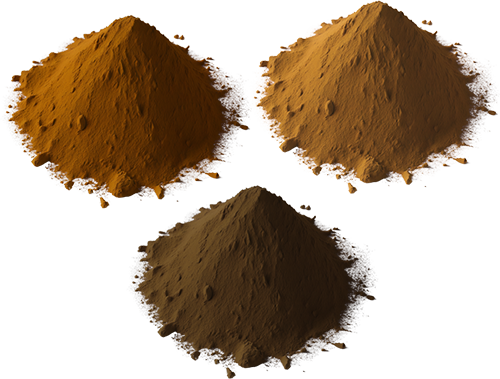We have different grades of carob powder
Contact us today to request a personalized quote for your bulk order.
Composition
Its nutritional benefits are the following:
- Carob flour has natural sugars (fructose, glucose and sucrose) between 40 and 50%.
- Contains 5% of protein.
- Minerals such as iron, calcium, magnesium, zinc, potassium, silicon and phosphorus.
- Vitamins such as A, B1, B2 and D.
- Rich in tannins (powerful antioxidant).
- Gluten free (suitable for celiacs).
- Rich in fibers (lignin and pectin).
Packing
- 25 kg bag.
- 1 mt big bag.
On the other hand, products like carob syrup and kibbled carob also offer multiple benefits thanks to their fiber and nutrient content. Carob seeds and Locust bean gum have specific uses in the food industry, while carob germ stands out for its high nutritional value.
Health Benefits of Carob Powder
• Supports digestion: Its prebiotic fiber promotes a healthy gut microbiome.
• Balances intestinal transit: Helps prevent both constipation and diarrhea.
• Antioxidant & anti-inflammatory: Tannins help reduce oxidative stress and inflammation.
• Supports cardiovascular health: May aid in reducing cholesterol and blood pressure.
• Satiety effect: Helps control appetite and prevent overeating.
Carob powder is a natural, nutritious ingredient with multiple health benefits, making it a valuable alternative to cocoa and refined sugars.

Why Choose Carob Powder?
Carob powder is sustainably sourced and offers a range of health benefits beyond its use as a natural sweetener. Its prebiotic, antioxidant, and mineral-rich profile makes it an excellent choice for both food and nutraceutical applications.
Related Products
Carob Syrup

Kibbled Carob
